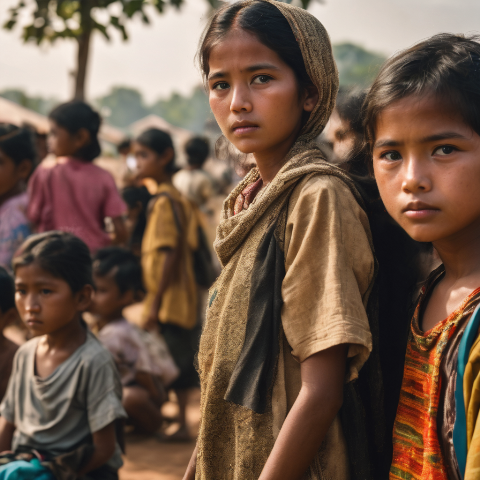Survey Reveals Global Attitudes Towards Refugees: Key Findings and Insights
The survey, released ahead of World Refugee Day on June 20, highlights the complex and varied perceptions of refugees across different regions, reflecting both support and concerns.

A comprehensive survey conducted by Ipsos in collaboration with UNHCR, the UN Refugee Agency, has shed light on global attitudes towards refugees. The survey, released ahead of World Refugee Day on June 20, highlights the complex and varied perceptions of refugees across different regions, reflecting both support and concerns.
Global Support for Refugees:
Overall Support: 73% of respondents across 52 countries believe that people fleeing war or persecution should be able to seek refuge in other countries, including their own.
Decline in Support: Compared to 2022, support for providing refuge has decreased in some countries, potentially influenced by geopolitical events such as the Russia-Ukraine conflict.
Regional Variations:
Positive Sentiments in Traditional Host Countries: Nations like Uganda and Kenya, with long histories of hosting refugees, generally exhibit higher optimism about refugee integration and its benefits.
Mixed Views in Major Host and Western Countries: While some see refugees as a positive addition to the labor market, economy, and culture, others express concerns about integration, national security, and the strain on public services.
Integration and Rights:
Education, Healthcare, and Employment: Around half of those surveyed support refugees’ rights to access education, healthcare, and jobs.
Family Reunification: Approximately three-quarters of respondents support policies that allow refugee families to reunite in the country of asylum.
Concerns and Challenges:
Economic and Security Concerns: A significant portion of respondents worry about the economic impact and potential security threats posed by refugees.
Support for Refugees: Despite concerns, a third of the participants actively support refugees through donations or social media engagement.
Perceptions by Age:
Generational Differences: Younger people tend to have more positive attitudes towards refugees compared to older individuals.
Role of Media:
Influence of Traditional and Social Media: These platforms remain trusted sources of information about refugees, highlighting the need for responsible reporting to shape public perception positively.
International Aid:
Insufficient Aid: 37% of respondents believe that international aid for countries hosting refugees is inadequate, emphasizing the need for increased support.
Statements from Key Figures:
Didier Truchot, Chairman and Founder of Ipsos: Emphasized the importance of understanding both positive and negative public perceptions to address concerns and support refugees effectively.
Dominique Hyde, UNHCR’s Director of External Relations: Highlighted the enduring support for refugees' right to seek safety and called for better communication to counter skepticism and foster empathy.
Context and Implications:
The survey, which included over 33,000 adults across 52 countries, aimed to enhance understanding of refugee issues and public support. As of May 2024, more than 120 million people were forcibly displaced globally, making the insights from this survey crucial for informing policies and advocacy efforts.
The findings from the Ipsos-UNHCR survey reveal a global landscape where support for refugees remains significant but is tempered by concerns about integration, security, and economic impact. Addressing these concerns through informed policies, effective communication, and increased international aid is essential to fostering a more welcoming environment for refugees worldwide.
- READ MORE ON:
- UNHCR
- World Refugee Day
- Ipsos










